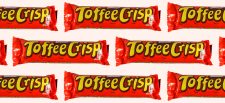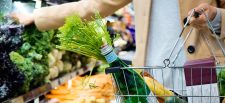Products that are allegedly high in salt and saturated fats are being marketed as ‘healthy’ by leading supermarkets, according to a new report by BBC Radio 5 Live.
BBC researchers visited branches of the top five supermarkets in the UK and, according to BBC, found that Sainsbury’s, Morrisons and Tesco were stocking products high in salt and saturated fat in sections marked ‘healthier choices’ and ‘healthy and diet meals.’
Responding, the British Dietetic Association said that stores including Tesco, Morrisons and Sainsbury’s were being “unhelpful” and “confusing” customers. The Royal Society for Public Health called for an independent supermarket regulator.
However, according to the item broadcast on 24th February, supermarkets said they were committed to ‘promoting healthy eating’.
The programme reported that Morrisons’ ‘healthier choices’ section contained a vegetarian steak slice with almost 10g of saturated fat – prompting the BBC to highlight this level being ‘nearly half of the recommended maximum daily amount’. The supermarket said the item “provides customers with a red-meat free alternative.”
The Radio 5 Live report alleged that Sainsbury’s edamame, coconut and lemongrass falafel contained more than 6g of saturated fat per half pack and was located in their ‘healthier choices’ section, whilst in Tesco’s ‘healthy and diet meals’ section, a lamb hotpot contained 8.5g of saturated fat, around 45% of the recommended maximum daily amount.
Featured in the programme was nutritionist Charlotte Stirling-Reed who said she was “quite shocked” at some of the items being marketed as ‘healthier choices’ adding that: “I’m not saying there’s anything wrong with eating them or consuming them in moderation – but telling consumers these are healthier options is a bit misleading.”
The Royal Society for Public Health (RSPH) was also featured and said that many products are being identified as “healthy” because they are vegetarian, vegan, free from certain ingredients, or have fewer calories. But added that many have high levels of fat, salt or sugar, and are highly processed.
Another example highlighted by the report was smoked meat substitute slices marketed as healthy in Sainsbury’s, which allegedly contained almost two grams of salt per four slices, which the programme stated is making them more salty than seawater.
Action on Salt, which campaigns for a reduction in the consumption of salt, said it was very time-consuming for shoppers to check every label to find a healthier option adding: “Placing products in ‘healthier choice’ sections of supermarkets should ideally highlight products that are actually better for our health.
“However, we’ve found that many of the vegetarian and vegan products in these sections of the supermarket can be high in salt, with some vegetarian burgers containing more salt than real beef burgers, meaning shoppers are being given a false sense of security.”
Sainsbury’s responded by saying: “Our range of healthier meals are currently stocked alongside our vegetarian and plant-based options. In some cases our signs were not updated to reflect this and we are putting this right.” Whilst Tesco commented: “We are sorry that some of our products were mistakenly included under the ‘Healthy and Diet Meals’ sign and are rectifying this immediately.” It said it was committed to helping customers live “healthier lives” and added that all nutritional information is clearly listed on packaging.
Morrisons also commented saying: “Our ‘Healthier Choices’ section provides customers with the option to buy an item that is healthier than a product that meets a similar need. A ‘Healthier Choices’ cheese will be substantially lower in fat than ones we sell elsewhere, but might still carry a red traffic light label.”
The ‘5 Live Investigates’ programme was broadcast on 24th February and a catch up version can be accessed via the BBC Sounds app.









